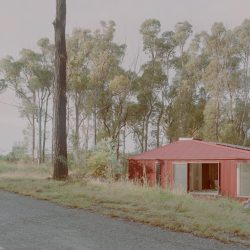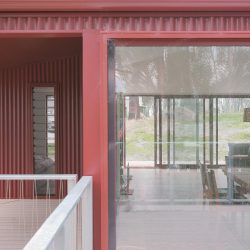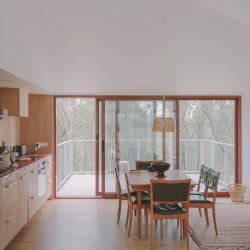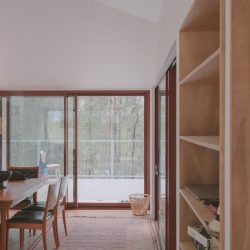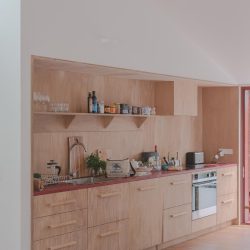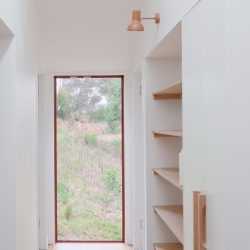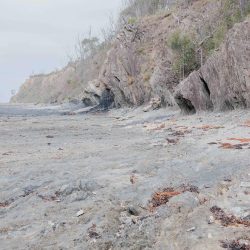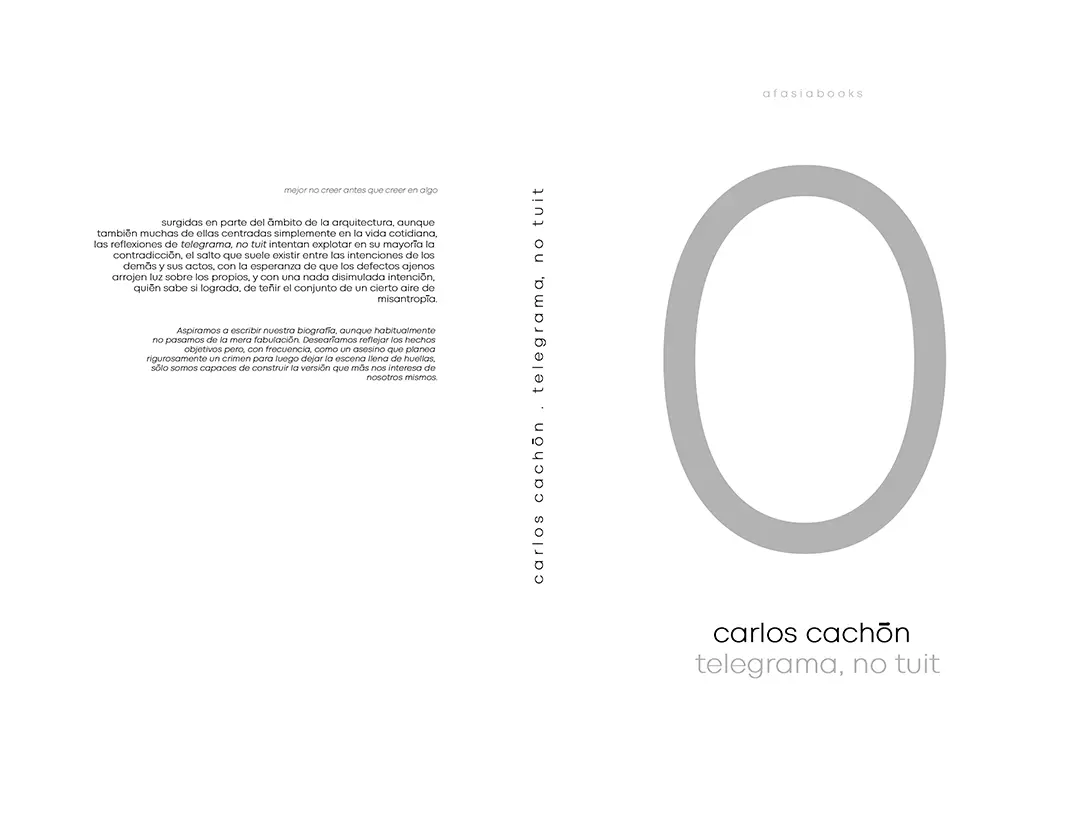
Scale architecture . photos: © Tim Clark
On Yuin country, Rosedale is a small coastal town on the South Coast of New South Wales, Australia. During the Black Summer bushfires of 2019-2020, the seaside community was completely razed, and the original Polish-style summer house, originally commissioned by our clients’ father was lost to fire.
The devastation to the built environment was clearly seen to the world, yet the hidden impacts to the social fabric remain a critical issue. Getting people back into their homes plays a vital role in repairing communities.
The house, clad entirely in red corrugated iron, with its hip-roof profile is an unashamed reference to the modest tin shacks that once lined our coastal towns. The monochromatic response might appear to sit in contrast against its bushy coastal suburban context, but is so fitting in its context, that it appears to hide in plain sight.
The compact 87m2 pavilion sits on an elevated galvanised steel structure, with a deck sitting amongst the majestic coastal spotted gums. The communal area runs through the centre of the plan while transverse to this is the circulation to the private spaces, which double as utility areas. A covered deck completes the simple rectangular plan, offering refuge from the searing Australian sun.
The Rosedale house is a small, yet significant contribution to the rebuilding effort in the wake of Black Summer bushfires. Importantly, it provides insight into how architecture can respond to the weight of the human caused climate change disaster project that is unfolding in front of us.
_


